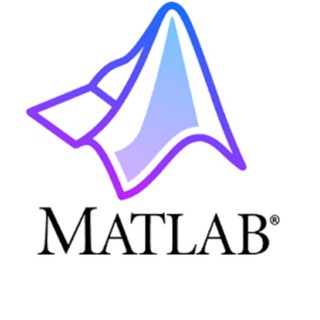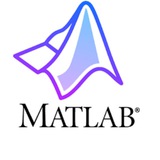MATLAB House :: Channel
#DataScience
Канал

319
подписчиков
12
фото
65
видео
42
ссылки
— این کانال جهت تبادل هر چه بهتر اطلاعات و اشتراک دانش در حوزه نرمافزار #متلب ایجاد شده است.
— گپ:@MATLABHOUSE
— آموزشها و پروژههای تکمیلی در justeducation.ir قرار خواهد گرفت.
Media is too big
VIEW IN TELEGRAM
⚜️Neural network course session four::
4️⃣Perceptron Learning Rule
🔵In this MATLAB tutorial video, we dive into the fundamentals of the Perceptron Learning Rule, a powerful algorithm for training single-layer neural networks. Through practical examples and step-by-step explanations, you'll learn how to implement the Perceptron Learning Rule in MATLAB to solve linearly separable classification problems.
We cover key concepts such as:
✅Perceptron architecture and decision boundaries
✅Supervised learning and training sets
✅Weight and bias updates using the Perceptron Learning Rule
✅Convergence and limitations of the Perceptron network
🔻YouTube: third session
Download file and codes (in comment)::
🔹Telegram:
🆔 @MATLAB_House
@MATLABHOUSE
#MATLAB #MachineLearning #NeuralNetworks #PerceptronLearningRule #AI #ArtificialIntelligence #DeepLearning #DataScience #Programming #Tutorial
4️⃣Perceptron Learning Rule
🔵In this MATLAB tutorial video, we dive into the fundamentals of the Perceptron Learning Rule, a powerful algorithm for training single-layer neural networks. Through practical examples and step-by-step explanations, you'll learn how to implement the Perceptron Learning Rule in MATLAB to solve linearly separable classification problems.
We cover key concepts such as:
✅Perceptron architecture and decision boundaries
✅Supervised learning and training sets
✅Weight and bias updates using the Perceptron Learning Rule
✅Convergence and limitations of the Perceptron network
🔻YouTube: third session
Download file and codes (in comment)::
🔹Telegram:
🆔 @MATLAB_House
@MATLABHOUSE
#MATLAB #MachineLearning #NeuralNetworks #PerceptronLearningRule #AI #ArtificialIntelligence #DeepLearning #DataScience #Programming #Tutorial
Media is too big
VIEW IN TELEGRAM
⚜️Neural network course session three::
3️⃣An Illustrative Example
🔵In this MATLAB tutorial, learn how to implement Principal Component Analysis (PCA) and Anchor Graphs for dimensionality reduction. The video covers the core concepts, provides step-by-step code explanations, and demonstrates how to visualize and compare results. By the end of this tutorial, you'll be able to apply PCA and Anchor Graphs to your own datasets in MATLAB. Suitable for both beginners and experienced users.
✅Visualizing PCA results in MATLAB
✅Introduction to Anchor Graphs and their advantages
✅Constructing Anchor Graphs in MATLAB
✅Using Anchor Graphs for efficient dimensionality reduction
✅Comparing PCA and Anchor Graph results
🔻YouTube: third session
Download file and codes (in comment)::
🔹Telegram:
🆔 @MATLAB_House
@MATLABHOUSE
#MATLAB #PCA #PrincipalComponentAnalysis #AnchorGraphs #DimensionalityReduction #MachineLearning #DataScience #Tutorial #Eigenvectors #Covariance #DataVisualization #Code #Programming
3️⃣An Illustrative Example
🔵In this MATLAB tutorial, learn how to implement Principal Component Analysis (PCA) and Anchor Graphs for dimensionality reduction. The video covers the core concepts, provides step-by-step code explanations, and demonstrates how to visualize and compare results. By the end of this tutorial, you'll be able to apply PCA and Anchor Graphs to your own datasets in MATLAB. Suitable for both beginners and experienced users.
✅Visualizing PCA results in MATLAB
✅Introduction to Anchor Graphs and their advantages
✅Constructing Anchor Graphs in MATLAB
✅Using Anchor Graphs for efficient dimensionality reduction
✅Comparing PCA and Anchor Graph results
🔻YouTube: third session
Download file and codes (in comment)::
🔹Telegram:
🆔 @MATLAB_House
@MATLABHOUSE
#MATLAB #PCA #PrincipalComponentAnalysis #AnchorGraphs #DimensionalityReduction #MachineLearning #DataScience #Tutorial #Eigenvectors #Covariance #DataVisualization #Code #Programming
Media is too big
VIEW IN TELEGRAM
🔺Fuzzy System Optimization Step-by-Step: Enhancing Interpolation with Genetic Algorithms🔻:
✳️In this detailed tutorial, we dive into the complex world of fuzzy system optimization using a genetic algorithm. Watch as we methodically enhance a fuzzy model to predict outputs more accurately through successive generations of optimization. Starting with the basics, the video explains the generation of membership functions for inputs and outputs and how they evolve through various iterations to minimize error.
🔻YouTube: https://youtu.be/KXM-diXXEyE
🔹Telegram:
🆔Channel: @MATLAB_House
🆔Group:@MATLABHOUSE
#FuzzyLogic #GeneticAlgorithm #SystemOptimization #MachineLearning #ArtificialIntelligence #DataScience #EngineeringTutorials #MATLAB #OptimizationTechniques #AlgorithmDevelopment #MATLAB_2024
✳️In this detailed tutorial, we dive into the complex world of fuzzy system optimization using a genetic algorithm. Watch as we methodically enhance a fuzzy model to predict outputs more accurately through successive generations of optimization. Starting with the basics, the video explains the generation of membership functions for inputs and outputs and how they evolve through various iterations to minimize error.
🔻YouTube: https://youtu.be/KXM-diXXEyE
🔹Telegram:
🆔Channel: @MATLAB_House
🆔Group:@MATLABHOUSE
#FuzzyLogic #GeneticAlgorithm #SystemOptimization #MachineLearning #ArtificialIntelligence #DataScience #EngineeringTutorials #MATLAB #OptimizationTechniques #AlgorithmDevelopment #MATLAB_2024
This media is not supported in your browser
VIEW IN TELEGRAM
❇️General Fuzzy C-Means Clustering with Objective Function Control
In this MATLAB tutorial, we explore the General Fuzzy C-Means (GFCM) clustering strategy, a novel approach from the IEEE Transactions on Fuzzy Systems that enhances the traditional fuzzy C-means clustering by using an objective function to control fuzziness. This method improves clustering precision by providing a clear definition of fuzzy degree, enabling exact control over results. We demonstrate the GFCM algorithm's adaptability across various distance metrics and fuzzy degrees, emphasizing the importance of choosing the right fuzzy degree. The tutorial covers theoretical basics, practical applications, and the algorithm’s convergence and stability, offering valuable insights for students, researchers, and professionals in data science and machine learning.
🔻YouTube: https://youtu.be/o9DxlIYMNM0
🔹Telegram:
🆔 @MATLAB_House
@MATLABHOUSE
#FuzzyClustering #DataScience #MachineLearning #IEEE #FuzzySystems #Clustering #ObjectiveFunction #GFCM
In this MATLAB tutorial, we explore the General Fuzzy C-Means (GFCM) clustering strategy, a novel approach from the IEEE Transactions on Fuzzy Systems that enhances the traditional fuzzy C-means clustering by using an objective function to control fuzziness. This method improves clustering precision by providing a clear definition of fuzzy degree, enabling exact control over results. We demonstrate the GFCM algorithm's adaptability across various distance metrics and fuzzy degrees, emphasizing the importance of choosing the right fuzzy degree. The tutorial covers theoretical basics, practical applications, and the algorithm’s convergence and stability, offering valuable insights for students, researchers, and professionals in data science and machine learning.
🔻YouTube: https://youtu.be/o9DxlIYMNM0
🔹Telegram:
🆔 @MATLAB_House
@MATLABHOUSE
#FuzzyClustering #DataScience #MachineLearning #IEEE #FuzzySystems #Clustering #ObjectiveFunction #GFCM
MATLAB House :: Channel
نکاتی در مورد تحلیل آماری و بهینه سازی کد 🆔 @MATLAB_House @MATLABHOUSE
Media is too big
VIEW IN TELEGRAM
❇️Fast Self-Supervised Clustering With Anchor Graph
This tutorial showcases the Fast Self-Supervised Clustering method for large-scale, high-dimensional data analysis without labeled samples, using MATLAB. It introduces the Fast Self-Supervised Framework (FSSF) and Balanced K-Means-based Hierarchical K-Means (BKHK) with bipartite graph theory. The method involves four key steps: acquiring an anchor set with BKHK, constructing a bipartite graph, solving the problem using FSSF, and selecting representative points for label propagation. Demonstrated to surpass other methods in performance and efficiency, it offers key insights for those in machine learning and data science.
🔻YouTube: https://youtu.be/_HgnVNGY5gQ
🔹Telegram:
🆔 @MATLAB_House
@MATLABHOUSE
#MachineLearning #MATLABSimulation #SelfSupervisedClustering #AnchorGraph #IEEE #DataScience #ClusteringAlgorithms #UnsupervisedLearning #BigData #AIResearch
This tutorial showcases the Fast Self-Supervised Clustering method for large-scale, high-dimensional data analysis without labeled samples, using MATLAB. It introduces the Fast Self-Supervised Framework (FSSF) and Balanced K-Means-based Hierarchical K-Means (BKHK) with bipartite graph theory. The method involves four key steps: acquiring an anchor set with BKHK, constructing a bipartite graph, solving the problem using FSSF, and selecting representative points for label propagation. Demonstrated to surpass other methods in performance and efficiency, it offers key insights for those in machine learning and data science.
🔻YouTube: https://youtu.be/_HgnVNGY5gQ
🔹Telegram:
🆔 @MATLAB_House
@MATLABHOUSE
#MachineLearning #MATLABSimulation #SelfSupervisedClustering #AnchorGraph #IEEE #DataScience #ClusteringAlgorithms #UnsupervisedLearning #BigData #AIResearch
Comparative Analysis of Bandit Algorithms for Optimal Decision-Making
Explore a comprehensive comparative analysis of various bandit algorithms used in reinforcement learning for optimal decision-making. This video showcases the implementation and evaluation of different methods such as Greedy, Epsilon-Greedy, UCB, and more, highlighting their strengths and performance in selecting optimal actions. Gain insights into the trade-off between exploration and exploitation strategies and learn how these algorithms can enhance decision-making systems. Join us for a deep dive into the world of bandit algorithms and their applications.
YouTube: https://youtu.be/K2dPVza-pSQ
🆔 @MATLAB_House
@MATLABHOUSE
#ReinforcementLearning #BanditAlgorithms #DecisionMaking #ExplorationVsExploitation #OptimalActionSelection #MachineLearning #DataScience #AI #CodeImplementation #AlgorithmComparison #PerformanceAnalysis
Explore a comprehensive comparative analysis of various bandit algorithms used in reinforcement learning for optimal decision-making. This video showcases the implementation and evaluation of different methods such as Greedy, Epsilon-Greedy, UCB, and more, highlighting their strengths and performance in selecting optimal actions. Gain insights into the trade-off between exploration and exploitation strategies and learn how these algorithms can enhance decision-making systems. Join us for a deep dive into the world of bandit algorithms and their applications.
YouTube: https://youtu.be/K2dPVza-pSQ
🆔 @MATLAB_House
@MATLABHOUSE
#ReinforcementLearning #BanditAlgorithms #DecisionMaking #ExplorationVsExploitation #OptimalActionSelection #MachineLearning #DataScience #AI #CodeImplementation #AlgorithmComparison #PerformanceAnalysis
Media is too big
VIEW IN TELEGRAM
In this video, we demonstrate how to use MATLAB and MQL4 programming languages to forecast the price of gold in the forex market. We'll walk you through the process of time series analysis, which involves analyzing and modeling patterns in historical price data to make predictions about future trends.
https://www.youtube.com/watch?v=7zSKoqd1LXs
🆔 @MATLAB_House
@MATLABHOUSE
#GoldPriceForecasting #ForexMarket #TimeSeriesAnalysis #MATLAB #MQL4 #AlgorithmicTrading #Investment #Trading #ARIMA #GARCH #KalmanFilter #MATLAB_House #MATLABCommunity #MATLABLearning #MATLABCode #MATLABProjects #MATLABTips #MATLABTricks #MATLABHelp #Finance #Economics #DataScience #Programming #Coding #Technology #FinancialData #FinancialAnalysis #StockMarket #CommoditiesMarket #TradingStrategies #InvestmentStrategies #QuantitativeFinance #DataAnalytics #DataVisualization #MATLABAlgorithms #MATLABFunctions #MATLABCoding #MachineLearning #ArtificialIntelligence #DeepLearning #NeuralNetworks
https://www.youtube.com/watch?v=7zSKoqd1LXs
🆔 @MATLAB_House
@MATLABHOUSE
#GoldPriceForecasting #ForexMarket #TimeSeriesAnalysis #MATLAB #MQL4 #AlgorithmicTrading #Investment #Trading #ARIMA #GARCH #KalmanFilter #MATLAB_House #MATLABCommunity #MATLABLearning #MATLABCode #MATLABProjects #MATLABTips #MATLABTricks #MATLABHelp #Finance #Economics #DataScience #Programming #Coding #Technology #FinancialData #FinancialAnalysis #StockMarket #CommoditiesMarket #TradingStrategies #InvestmentStrategies #QuantitativeFinance #DataAnalytics #DataVisualization #MATLABAlgorithms #MATLABFunctions #MATLABCoding #MachineLearning #ArtificialIntelligence #DeepLearning #NeuralNetworks
